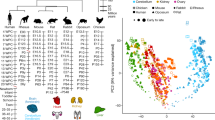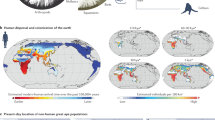Abstract
As I read over the homily which my friend Prof. MacBride has addressed to readers of NATURE in general and to myself in particular—one with which we are all becoming familiar—I was reminded of an experience suffered by Huxley when he lectured at the Royal Institution on the cerebellum. At the end of the lecture, a devout hearer approached to inform him that she had understood and enjoyed the lecture—with the exception of one point—was the cerebellum inside or outside the skull? After I have filled 24 columns of your valuable space to prove that Huxley was altogether right when he denied that use-inheritance played any part in the evolution of man—or of any other animal—Prof. MacBride, after reading these columns, turns round and practically asks me if I have heard of Kammerer!
This is a preview of subscription content, access via your institution
Access options
Subscribe to this journal
Receive 51 print issues and online access
$199.00 per year
only $3.90 per issue
Buy this article
- Purchase on Springer Link
- Instant access to full article PDF
Prices may be subject to local taxes which are calculated during checkout
Similar content being viewed by others
Rights and permissions
About this article
Cite this article
KEITH, A. Embryology and Use-Inheritance. Nature 112, 360–361 (1923). https://doi.org/10.1038/112360a0
Issue Date:
DOI: https://doi.org/10.1038/112360a0
Comments
By submitting a comment you agree to abide by our Terms and Community Guidelines. If you find something abusive or that does not comply with our terms or guidelines please flag it as inappropriate.



